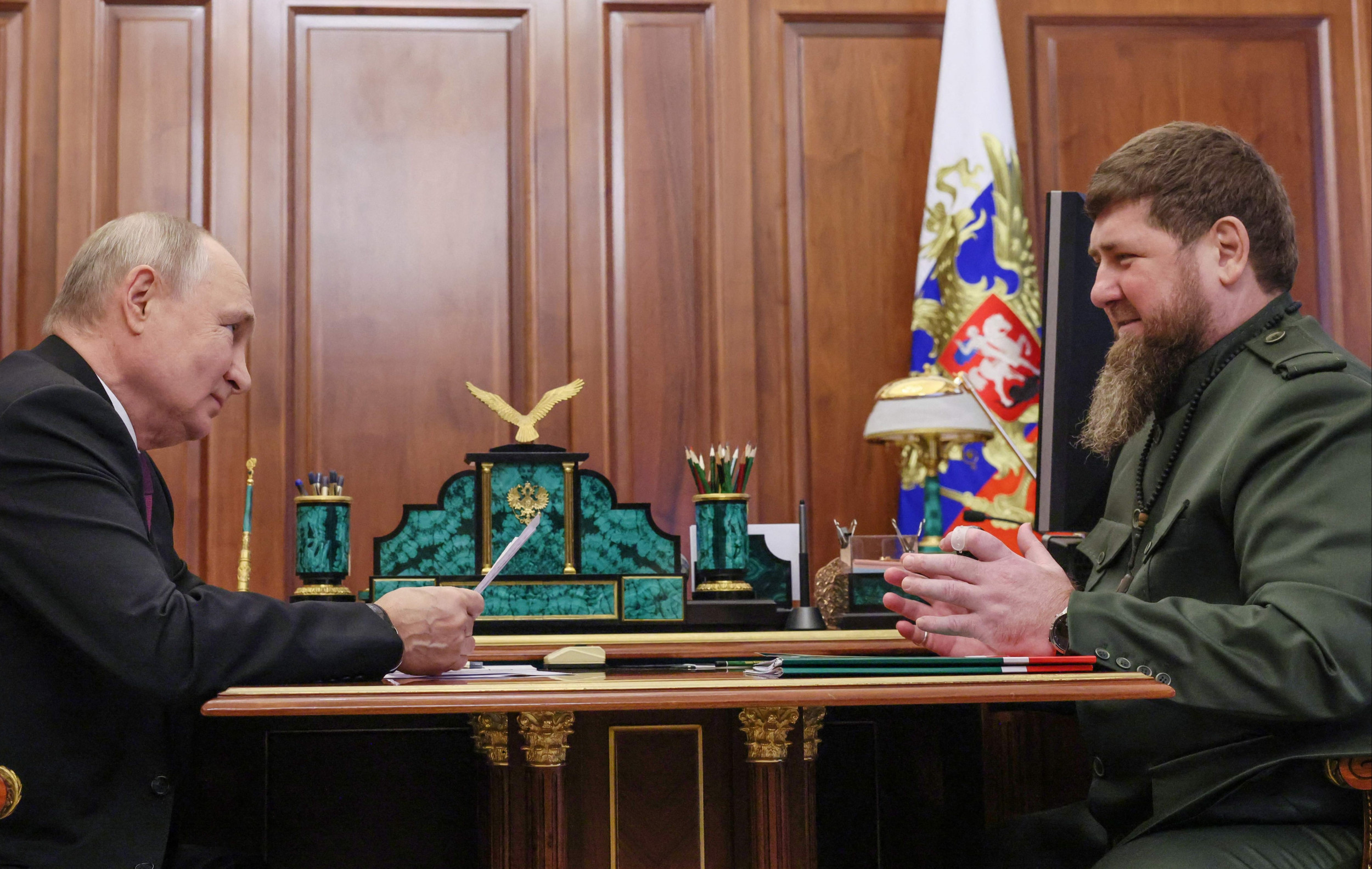Putin's Money Problems Put Him on Path to Conflict With Warlord Kadyrov
Chechnya is among eight Moscow-controlled entities that have been ordered to cut budget deficits or face an end to their subsidies, as the Russian finance ministry deals with the spiraling cost of the war in Ukraine started by Vladimir Putin .
Russian newspaper Kommersant reported that a draft government decree to balance the books has been issued to territories including the Caucasus republic. Its leader, Ramzan Kadyrov, is a Putin loyalist, frequently dubbed a "warlord," who has deployed his own troops, called Kadyrovites, to Ukraine.
In January 2022, Kadyrov said Russian handouts in the predominantly Muslim republic he headed totaled 300 billion rubles ($3.4 billion) a year and that without them: "I swear to the almighty Allah, we won't be able to last three months—not even a month."
But an expert on the Russian economy told Newsweek that the country's finance ministry is sending out the message that "the bottomless well is no longer bottomless."
Vladimir Putin (L) with Ramzan Kadyrov in Moscow on September 28, 2023. The republic Kadyrov leads will have to cut budget deficits or face a loss in subsidies, Russian media reported.The move follows reports last month that Russia could miss its 2024 revenue target and be forced to hike its business taxes amid the ballooning military costs and the impact of Western sanctions. Russia's finance ministry has adjusted its budget throughout the year with the emphasis on supporting the military-industrial complex for its war effort.
Other regions ordered to reduce the gap between expenditure and income, or face subsidy cuts, include Ingushetia and Dagestan in the Russian Caucasus, as well as Tuva, in southern Siberia, which has provided many troops for the war.
Also named are the territories in Ukraine that Putin in September 2022 said had been annexed —the Donetsk, Luhansk, Kherson and Zaporizhzhia oblasts, which are not fully controlled by Moscow.
The finance ministry told the newspaper that the eight entities were being targeted because despite their high share of federal subsidies they had overspent by 40 percent in two out of the last three financial years.
Kommersant reported that it was uncertain whether "such 'heavyweights' as the heads of Chechnya and Dagestan, can be easily forced to comply with these demands."
Chris Weafer, chief executive officer of strategic consultants Macro-Advisory Ltd., said that the Kremlin was sending the message to profligate regions that the Russian finance ministry "has been beating the table all year about the need to enforce spending discipline in all areas of the budget."
"Several regions have always adopted the position that they have a special political significance, such as Dagestan and Chechnya, and relied on the Kremlin to block any criticism or actions to cut subsidies from the cabinet," he told Newsweek.
"This is a message for the Kremlin as much as it is to the regions mentioned—if you want budget discipline then stop giving spending exemption cover to these regions," he said. "The days of easy money are over—the bottomless well is now longer bottomless."
He said that the four annexed territories have been given the order to balance the books "to ensure they do not slip into bad fiscal habits and also assume they can be viewed as special political cases with Kremlin support in the future."
Weafer, who has reported on Russia's economy since 1998, said that the move comes against the backdrop of lower-than-expected oil tax receipts for the first seven months of 2023, during which Russia's federal budget was in "real trouble" coming into July.
The mid-year deficit was 2.5 percent of GDP, although since then higher export prices for oil, improved tax collection plus the devaluation of the currency had put the budget within the target deficit.
Kommersant and other Russian outlets said that the governors of the eight entities have until December 18 to sign spending promises that include detailing outlays on social programs, what income will be collected and restrictions on inflation-linked pay rises for public sector workers.
"The finance minister (Anton Siluanov) had enough sleepless nights this year and is pushing every opportunity for budget discipline in all areas," Weafer said.
Newsweek contacted the Russian finance ministry by email for comment.










